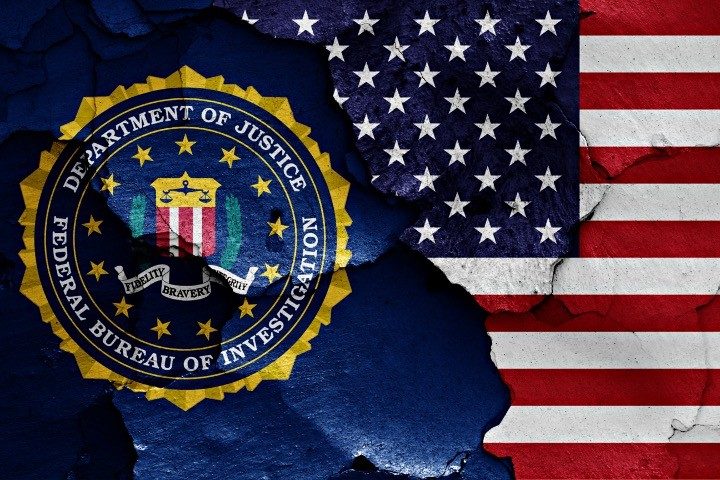by Luis Miguel, The New American:

There’s a reason the intelligence community has come to be known as the Deep State.
A new report by Politico, in which the outlet spoke with former top officials of U.S. intelligence agencies, revealed that members of these agencies are worried about the possibility of a second Donald Trump presidency, displaying partisanship in a field that ostensibly is supposed to remain politically neutral and concerned only with the country’s national security.
The outlet noted that “Many of the former officials said they opted to speak to POLITICO because they believe the extent to which Trump could remake the intelligence community remains — despite the copious media coverage — underestimated.”
TRUTH LIVES on at https://sgtreport.tv/
A common sentiment among many in the intelligence community is that Trump would replace career officials with loyalists who would keep him away from important intelligence that does not coincide with his worldview.
Among those who spoke with Politico was Fiona Hill, the former top Russia advisor on the National Security Council who was a witness during the House’s Trump impeachment hearings.
“He wants to weaponize the intelligence community,” Hill said of Trump. “And the fact is you need to look with a 360 degree perspective. He can’t just cherry pick what he wants to hear when there are so many U.S. adversaries and countries that don’t wish the U.S. well.”
She added, “If he guts the intel on one thing, he’ll be partially blinding us.”
Trump allies fired back at these contentions.
A former high-ranking White House official during the Trump administration who has maintained close ties to Trump and his team says that several key national security officials from the Trump years shared the belief that intelligence agencies were politically influenced and burdened by bureaucratic excess, resulting in frequent miscalculations on crucial matters.
Another ex-national security official from the Trump administration, who continues to communicate with the former president, emphasized the necessity, should Trump be reelected, for him to appoint individuals to the agencies whom he trusts and remove those with a track record of undermining his authority.
Trump and federal agencies had an adversarial relationship even before he assumed the presidency in 2017. Under a directive from Barack Obama, the FBI investigated the Trump campaign for alleged ties to Russia, using the now-discredited Steele dossier as its basis.
The Steele dossier, at the FBI’s insistence, was included by the intelligence community in its 2016 report on foreign election interference.
Andrew McCabe, who served as the deputy director of the FBI at the time, stated that the bureau deemed it necessary to comply with Obama’s order to gather all available intelligence on Russian meddling. Including it in the appendix was intended to explicitly convey that the Steele dossier “remained raw, unverified, and did not serve as the foundation for our assessments,” according to McCabe.
Now, members of the intelligence community are looking forward with unease to the prospect of Trump making changes should he return to the White House. They point to the choices he made during his term in office, which ruffled some feathers.
“There were often a lot of appointments that seemed designed to make sure that the intelligence assessments could be shaped to paint certain pictures that simply didn’t match up with what the intelligence community had come up with,” said a former official who served during Trump’s tenure.
Politico further documents some of the personnel changes that made intelligence fixtures fume:
Trump then tapped former U.S. Ambassador to Germany Richard Grenell — a staunch supporter of the former president — to helm [the Office of the Director of National Intelligence] in February 2020. Grenell had no intelligence experience but had served for years as a political adviser and as a spokesperson for the United Nations.
Kash Patel, former top adviser to Devin Nunes, a former representative from California, and director of counterterrorism at the National Security Council, served as an informal adviser to Grenell but was also considered for a top post at the CIA. He later became chief of staff to the acting secretary of defense in Trump’s final months. Patel also helped advise on an initiative to declassify material related to the origins of the Russia investigation.
If Trump is elected, there are concerns among current and former intelligence officials about Patel’s likely return, and the impact it may have on the safeguarding of U.S. intelligence sources and methods.
Given how strongly the intelligence community feels threatened by another Trump presidency, don’t the American people have cause to be concerned that intelligence agencies might use every means at their disposal to prevent a Trump election?
As The New American reported, retired Air Force Lt. General Thomas McInerney, who had an illustrious career in top military positions and is a friend of Lt. General Mike Flynn, said that U.S. Special Forces were involved in an operation to secure servers that contained crucial information to prove the reality of voter fraud in the 2020 election.
Read More @ TheNewAmerican.com




